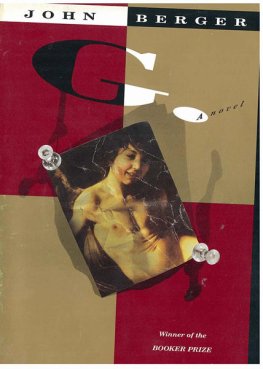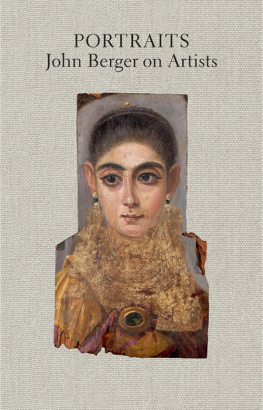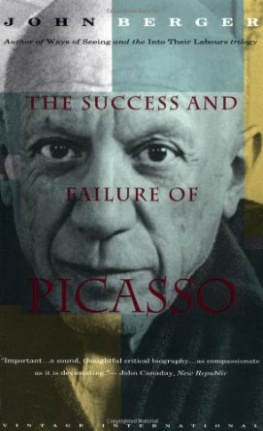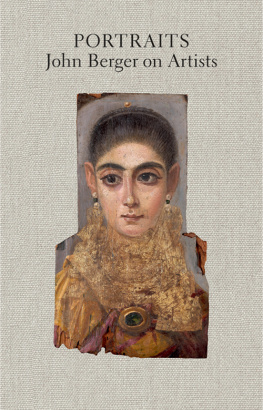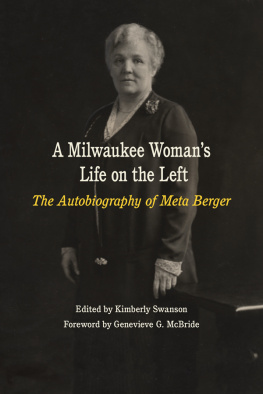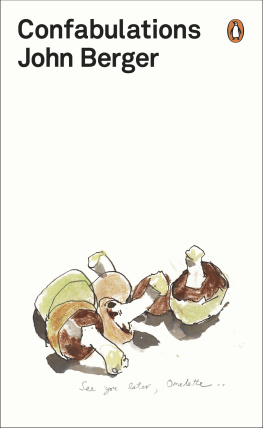For Anya
and for her sisters in Womens Liberation

In this book there are a few unacknowledged quotations in the text:
1. One minute in the life of the world is going by. Paint it as it is. is a quotation from Czanne. Source unknown.
2. paragraph which begins He was poorly equipped from Personal Reminiscence of Garibaldi and the Garibaldini by the Rev. H.R. Haweis. Quoted by G.M. Trevelyan in Garibaldi and the Making of Italy.
3. paragraph which begins Animals do not admire each other Pascal, Penses, No. 685.
4. paragraph which begins Honey may be either healthy or toxic Lvi-Strauss, Mythologiques III, LOrigine des Manires de Table.
5. paragraph which begins All history is contemporary history R.G. Collingwood, The Idea of History.
6. paragraph which begins An assault on the town hall From a contemporary account. Source untraceable.
7. paragraph which begins The land surface Encyclopaedia Britannica, Edition 1911. Entry: British Empire.
8. paragraph which begins I despise this dust of which I am compounded, Saint Just, Discours sur les Institutions Rpublicaines.
9. This page and following pages: in the account of the battle of Auvers Ridge, I have drawn heavily on the research done by Alan Clark and published in his book called The Donkeys. I have also quoted sentences by him.
For the writing of this book the author acknowledges assistance from the Arts Council of Great Britain.
Other acknowledgements to friends are too deep and intensive to tabulate.
J.B.
The father of the principal protagonist of this book was called Umberto. He was a merchant from the city of Livorno and he dealt in candied fruit. He was a short fat man who looked shorter because of the largeness of his head. To women not unduly frightened of gossip and public opinion, the unusual size of Umbertos head may have been attractive. It suggested obstinacy, weight and passion. Most of the women of the merchant class in Livorno or Pisa were timid. Consequently he had gained among them the reputation of being monstrous. He was called La Bestia: a word nominally justified by his rudeness, his leering and his arrogance, but nevertheless retaining in their usage just sufficient of its rawer meaning to both feed and suppress the feelings of attraction they unconsciously felt. It was significant in this respect that they never called him La Bestia in front of their husbands. The nickname was reserved for purely feminine conversations during the afternoon.
Umbertos wife, Esther, was the daughter of a Jewish Livornese journalist, who had been a liberal. She married Umberto when she was twenty. Her father disapproved of the marriage because he considered Umberto coarse and uncultured but he refused to act against his liberal principles by forbidding it. When she was twenty-one her father died suddenly. The mystery of her own poor health began with his death and gradually established the foundations of a lifelong right: the right to be less than present, the right to withdraw. It seemed to Umberto that he had married a ghost. (All ghosts for him were connected with women and their supernatural tendencies.) It seemed to her that she had married a beastalthough at that time she did not know how her women friends referred to her husband.
Esther led a full social life in the provincial city. Scarcely an afternoon passed without her visiting or being visited. Nobody refused an invitation to her dinner parties. Her secretand it was partly the secret of her husbands power in Livornolay in her appearance. She had a very pale skin, dark brown hair which she wore tightly drawn back from her face and slow-moving eyes with heavy shadows beneath them. Both her face and her body were exceedingly thin. Yet she did not look sickly. The sickly emphasize the unpredictability of the flesh: there is a kind of pathetic and grating sensuality about them. Esther looked delicate, fragile, as though she were made of some material other than flesh: a material which had been wrought and intricately finished so that there seemed to be no danger of it ever changing.
To her circle of friends and acquaintances in Livorno Esthers physical character was a sign of unusual spirituality. It was she who understood what they aspired to. It was she who appreciated better than any of them Faith, Beauty, the Longings of the Soul, Forgiveness, Innocence, Filial Piety, Love. If a guest, when talking, wished to evoke the spirituality of his experience, he turned towards her for confirmation; one nod from her, even the slow lowering of her eyelids, was sufficient to make him feel that he had been understood and that therefore he was telling the truth.
When women were alone with her, they talked of themselves. In talking they tended to present themselves in as bad a light as possible, for the worse they made themselves out to be, the more licence they would have afterwards when she had approved of them. It was her approval they sought. They gained it as soon as they had finished talking. It then became clear to them (and each time it was a surprise) that since she had listened with interest and made no critical comment (which she never did), she must approve of what they had done or intended to do. She was like a father confessor who belonged to their own sex.
None of this would have been possible however without her husband. Had it not been for Umberto, she might have been suspected of being a saint, instead of just looking like one. And this would have been fatal for her social position. She might represent certain spiritual values, but she must first and foremost represent them, the bourgeoisie of Livorno. The fact that she was the wife of a successful candied-fruit manufacturer preserved her for them. More than that, she was the wife of a man notorious for hard bargaining, coarse manners and heavy appetites. Consequently they believed it was impossible that living with him had not to some degree corrupted her. And this corruption, which could never be entirely refuted, prevented her spirituality from ever appearing excessive or embarrassing.
Similarly, the fact that Esther was Umbertos wife saved him from appearing too extreme. Without her, he might have been reckoned a profligate. With her, it was possible to believe that he had been tamed.

The mother of the principal protagonist was a woman of twenty-six, whose first name was Laura. Her mother was an American, her father, now dead, a general in the British army.
I see Laura and Esther, who never met, side by side as they must have appeared sometimes in Umbertos mind. Laura is short with fairish hair and a slightly snub nose. Beside Esther she looks like a dumpy child. Yet her bearing is not altogether childish. She wears expensive clothes with skillthough not with Esthers dignity. She talks a great deal in an insistent voice; Esther listens. Esthers hands are tapered and sensitive; Lauras are podgy and squat. Lauras eyes are hazel-coloured and when she wants to give warning of her disagreement she opens them very wide. When Esther disagrees, she closes her eyes. If Esther were surprised whilst taking her bath, she would freeze like certain wild animals and remain absolutely motionless; if Laura were so surprised, she would clap her hands over her breasts, huddle up her body and shout.
Each was jealous of the other: Laura because she believed, on the evidence of a photograph which she had persuaded Umberto to show her, that Esther had all the natural feminine qualities she lacked; Esther because she suspected that Umberto spent vast amounts of money on his American mistress.

